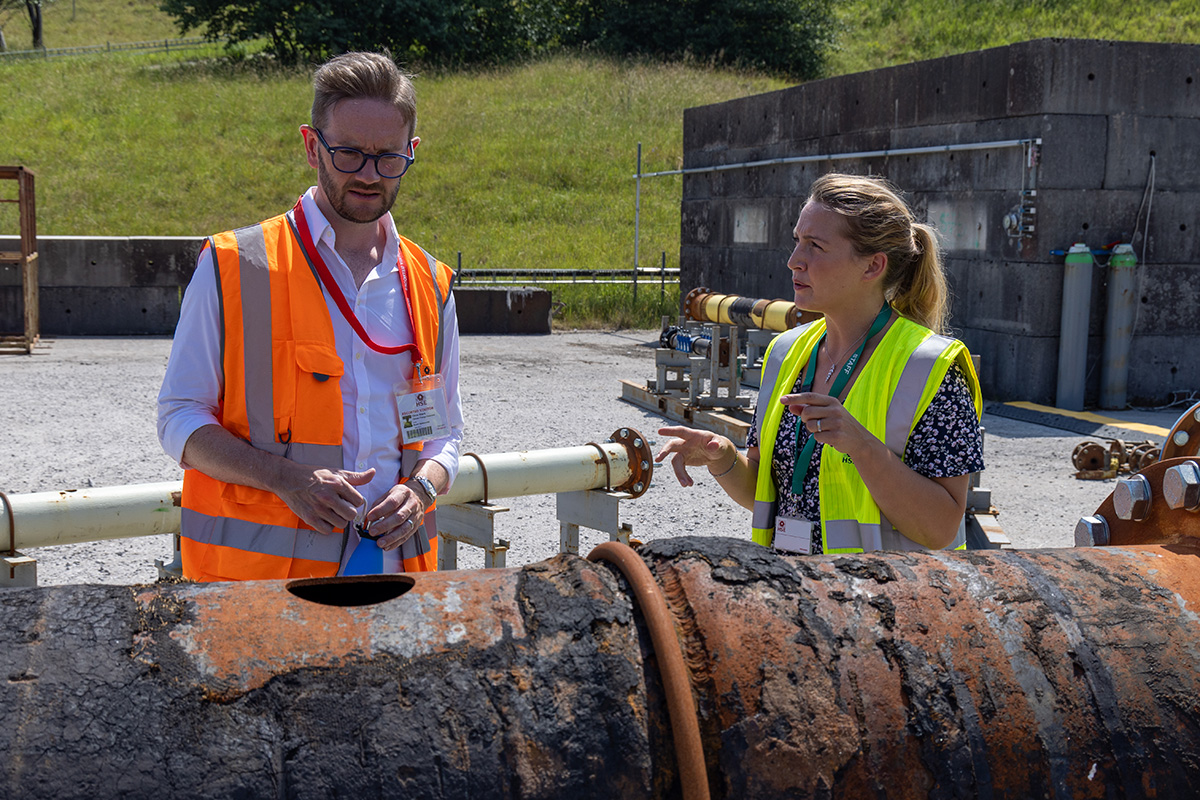
Climate Change Committee CEO Chris Stark has said hydrogen is “crucial” to reaching the UK’s legally mandated target of reaching net zero carbon emissions by 2050, adding that producing and distributing enough of the gas will be one of the “defining energy challenges” facing the country over the coming years.
He made the comments while on a tour of UK hydrogen innovations hosted by the Institution of Gas Engineers & Managers (IGEM), which examined how the component parts of research, demonstration and pilot projects are working together to build a new hydrogen economy for the UK.
IGEM took a delegation from the Climate Change Committee (CCC) on a tour of facilities around the north of England, exploring some of the incredible work being carried out by its members as they work to engineer a sustainable gas future and showcasing how hydrogen has a place in achieving net zero.
Chris Stark, CEO of the CCC, said: “Our analysis has demonstrated multiple pathways to net zero in the UK. In all of them, it’s clear we will need a lot of clean hydrogen. Defining the roles that hydrogen will eventually play – its production, transmission and distribution – are now some of the defining energy challenges facing the country.
“I’m grateful to IGEM for the opportunity to visit a range of hydrogen projects, trials and demonstrators. After three days in the north of England, I’m struck by how quickly projects are now moving to implementation. That’s great news, and entirely in line with the advice of the Climate Change Committee. But government and industry must keep up the pace. The growth of clean hydrogen is critical on the path to net zero.”
The group visited the HyNet industrial cluster project at Essar’s Stanlow Complex, in Ellesmere Port, where low carbon hydrogen production and distribution will be delivered for 30 signed-up industrial customers. This will include a pipeline to permanently store the extracted carbon dioxide where it originally came from.
The other visits included the H21 hydrogen testing facility at the HSE’s Science & Research Centre, in Buxton, the Hydrogen Homes and HyDeploy hydrogen blending rig, in Gateshead, and a microcosm of a future hydrogen system at the DNV Spadeadam Research & Testing Site, near Carlisle.
IGEM’s CEO, Oliver Lancaster, said: “Looking back over a busy few days, it’s definitely been worth taking the Climate Change Committee on a hydrogen learning journey, which has helped to reinforce the excellent work that’s come before us. For us, it’s reinforced what we already know – that hydrogen can safely deliver for our energy needs using existing infrastructure for industry, power generation, heating, cooking and transport.
“With hydrogen production and supply corridors urgently needed for industrial clusters, we’re beginning to see the wide-reaching benefits of deploying hydrogen across the economy, not just against individual demand opportunities.
“This tour has also highlighted the urgent need to put skills on the agenda if we are to deliver all parts of net zero, making sure the next crop of engineers can enjoy exciting careers in hydrogen design and delivery. And, crucially, if we want to create a better world for future generations, it’s going to be ‘all hands on deck’ – that means creating a diverse and inclusive community in which every engineer, regardless of their background, can play a part.”
The group also saw parts of the existing natural gas transmission and distribution system being connected and operating hydrogen trials to prove network readiness. They saw hydrogen being used in homes with hydrogen appliances which are the same ones we use today, including carbon emission-free hydrogen-fired boilers, ovens, hobs and fires developed by the government’s Hy4Heat programme.
David Parkin, Project Director for HyNet and President of IGEM, said: “We were delighted to host Chris and the Climate Change Committee team as we toured hydrogen projects across the north of the UK.
“The UK workforce, and supply chain, has the opportunity to lead the global hydrogen economy. From hydrogen production, transport, storage – all the way through to the multiple uses of this flexible, low carbon fuel. The future is ours for the taking.
“The UK’s engineers are amongst the best in the world and are ready – and able – to make hydrogen happen.”
In addition to the site visits, the group received briefings from Cadent, DNV, the Health and Safety Executive (HSE), National Grid, Northern Gas Networks (NGN), Progressive Energy, Vertex Hydrogen, SGN and Wales & West Utilities on the range of innovative work taking place in hydrogen, including local, regional and national plans for hydrogen conversion.













